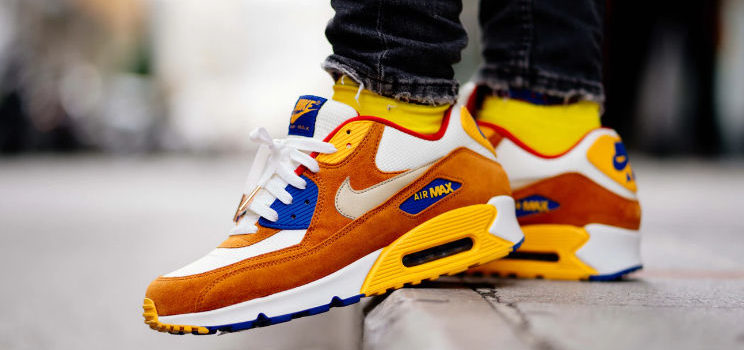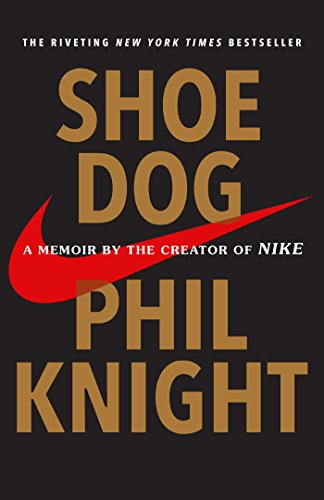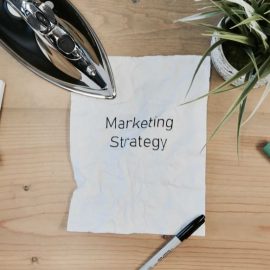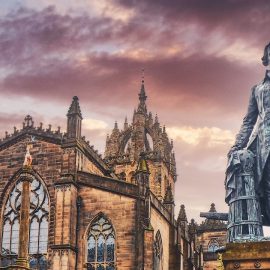

This article is an excerpt from the Shortform summary of "Shoe Dog" by Phil Knight. Shortform has the world's best summaries of books you should be reading.
Like this article? Sign up for a free trial here .
Nike is a juggernaut company today, but early in its history, it ran into constant financial problems. It was so aggressive in expanding that it always had issues paying back its bank.
At one point, its bank said enough was enough. It would no longer extend Nike credit to grow. Phil Knight is devastated. Until he gets a new partner: Nissho Iwai.
From his memoir Shoe Dog, here are the key details about Nike and Nissho.
1970
As always, the bank has problems with Blue Ribbon’s perennially low cash reserves. Bigger sales has meant bigger loans, which would be harder to pay off and higher risk if the company collapsed. As always, Phil is frustrated that the banks don’t see the bigger picture – a company doubling every year!
With $600,000 in sales this year, Phil asks for a $1.2 million loan. This sounds crazy to the bank. Stretched to the limit, they give him an unsavory ultimatum – his credit line is now maxed. Blue Ribbon can have no more money until they put more cash in their account. They’re also now imposing sales quotas – miss one deadline and they’ll break the relationship.
So money’s now a problem. First, they need $20k for a shipment from Onitsuka. They don’t have it. Blue Ribbon tries a public offering, hoping to get some interest from investors by selling 30% at 300k. Almost no one bites – they raise just $300.
He eventually scrapes together the $20k from receivables, but they need more cash to operate. He has to do what he vowed never to do – ask everyone he knows for money: former teammates, family, friends. Woodell’s family comes to the rescue. They’re not well off, but they give him their entire life savings – $8,000.
Phil reads about Japanese trading companies that are rising in international prominence and seem to do just about everything – import, export, and extend easy credit to all kinds of companies. He goes to the Bank of Tokyo branch in Portland and asks for help. They direct him to Nissho Iwai, Japan’s 6th largest trading company with $100 billion in sales. After just a short conversation, Nissho Iwai offers him a deal on the spot.
1971: The Start of Nike
Phil Knight is certain he needs to build Nike to stop being dependent on Onitsuka.
To compound problems, First National has reached the end of its line. They will issue no more letters of credit. When they pay off the remaining bills, Blue Ribbon’s account will be terminated. After getting rejected a few times, Phil gets a small line of credit from Bank of California.
But he needs more money, from a partner that understands growth. They now have $1.3 million in sales (continuing to double each year) and he’s still having trouble keeping his company afloat.
Nissho Iwai, the Japanese trading company, comes to the rescue through its representative Tom Sumeragi. He says that Nissho is willing to make loans to Blue Ribbon. Nissho Iwai itself had gone to Onitsuka to convince them to allow the deal, but Onitsuka had refused. Nissho was embarrassed by the rejection, a $100 billion company being rejected by a $25 million company, and that spurred their help.
They seal a 4% revenue share agreement, and Nissho introduces Blue Ribbon to shoe manufacturers and genuine “shoe dogs,” people who devote themselves wholly to the making and selling of shoes. Sound crazy to care so much about shoes? Shoe dogs see crafting shoes as connecting to humanity, being the connection between a person and the earth.
1975
Financially, Phil Knight constantly pushes the pedal to the metal. He knows there is huge demand for Nike shoes, and he can’t sell them quickly enough. So why limit factory orders to go in the black, when you know the demand is out there? He doesn’t see this as reckless – the demand is there.
This means Blue Ribbon lives check to check, barely making their monthly payments to the Bank of California and Nissho. Just one late payment to Blue Ribbon, and the whole tower might crumble.
And one day, that one check from a retailer is late. They’re $75,000 short, out of a total $1 million, to pay Nissho. To make it work, they deplete the bank accounts of all their retail stores and factories.
Then the factory workers’ paychecks bounce. And their creditors’ checks bounce.
Then Bank of California tells them they no longer want Blue Ribbon’s business, they’re freezing their funds, and they’ve contacted the FBI, since it looks like fraud to them.
Phil Knight takes all this to Nissho Iwai. They’re sympathetic, knowing that businesses run on float, but they insist on looking at Blue Ribbon’s books. Sumeragi and Ito, a senior manager, park in Blue Ribbon’s office to audit their finances.
Through all of this, Phil Knight finds it hard to sleep, thinking about his life and questioning his decisions up to that point. If only he’d been a good encyclopedia salesman, he wouldn’t be in this mess.
Near the end of the audit, Sumeragi admits the situation is even worse than it first appeared. He’d delayed sending invoices to Blue Ribbon until he knew they could pay them back. In reality, Blue Ribbon was never paying Nissho on time. Ito questions Sumeragi on why he would do this, and Sumeragi replies that he thinks Blue Ribbon could be a great success. He likes Phil and the Blue Ribbon folks.
Having completed the accounting, Ito is satisfied. “There are worse things than ambition,” he says. Ito travels with Phil Knight and Hayes to Bank of California. There Ito lays down the law: they will pay off Blue Ribbon’s debt in full. And wasn’t Bank of California trying to win Nissho’s business? Consider that before bullying one of their companies. Phil is eternally grateful for this support.
———End of Preview———

Like what you just read? Read the rest of the world's best summary of "Shoe Dog" at Shortform . Learn the book's critical concepts in 20 minutes or less .
Here's what you'll find in our full Shoe Dog summary :
- How Phil Knight started Nike when he was just 24 years old
- The lawsuit that almost ended Nike
- The ups and downs of Nike over 20 years of business







Thank you for this summary! While reading the book, Shoe Dog, I forgot what Nissho’s role was. I thought they were a bank. Thank you for providing this description, “Phil reads about Japanese trading companies that are rising in international prominence and seem to do just about everything – import, export, and extend easy credit to all kinds of companies. He goes to the Bank of Tokyo branch in Portland and asks for help. They direct him to Nissho Iwai, Japan’s 6th largest trading company with $100 billion in sales. After just a short conversation, Nissho Iwai offers him a deal on the spot.”